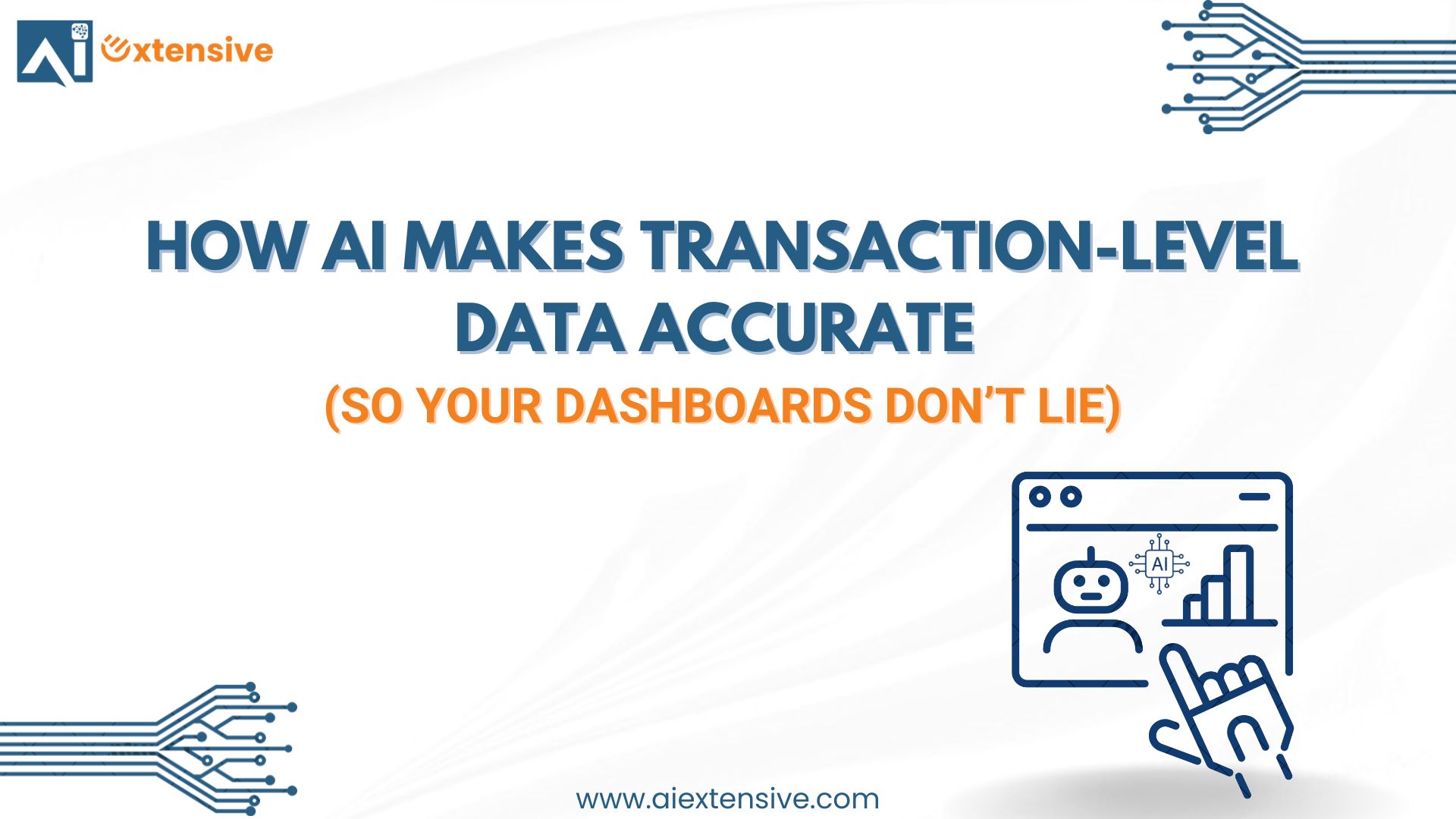Have you ever closed your books and realised one small error in a transaction has created a domino effect?
- A wrongly entered invoice.
- A debit/credit slip that went unnoticed.
- A duplicate vendor entry in the system.
Individually, these seem harmless. But in reality, they flow into:
- Misstated ledgers 🧾
- Wrong MIS dashboards 📊
- GST and compliance mismatches 🏛️
- Audit headaches 🔍
And the harsh truth? The more digital your system, the faster these errors spread. Technology can amplify mistakes if the foundation—your transaction data—is not accurate.
Where AI Becomes the Silent Guardian
This is where AI makes a real difference. Not flashy, not futuristic—but in very practical ways.
1. AI checks before you post It reads invoices, POs, and vouchers, and automatically validates whether the tax, GST, or vendor details match your rules. Think of it as a 24×7 proofreader for your finance entries.
2. AI matches faster than humans Remember the painful 3-way match (Invoice ↔ PO ↔ GRN)? AI does it in seconds, and even learns your tolerance levels so you don’t get flooded with false alerts.
3. AI watches transactions like a guard Unusual timings, duplicate entries, odd GL codes—AI picks them up instantly instead of you waiting till month-end. It’s like having an audit assistant watching every entry in real time.
4. AI keeps your masters clean No more vendor duplicates or mismatched GSTINs. AI merges and standardises your vendor/customer master data, creating one reliable version of truth.
5. AI turns policy into practice Finance teams can write plain rules—“Flag all invoices where GST ≠ HSN rate”—and AI enforces them automatically. No coding needed.
Following are some of the solution with AI
1) Read → Validate → Post (IDP on source docs) AI-powered Intelligent Document Processing (IDP) extracts values from invoices/POs/GRNs and auto-validates against business rules before posting to the ledger—cutting keystroke errors at the source. Recent benchmarks show strong extraction accuracy across invoice layouts when using modern models, especially when paired with validation rules.
2) 3-Way match & auto-reconciliation Machine-learning systems compare Invoice ↔ PO ↔ GRN and flag price/quantity mismatches instantly; they also learn your historical tolerance patterns to reduce false positives—tightening ICFR/SOX compliance and speeding AP close.
3) Continuous anomaly detection ML watches every transaction for outliers (unusual vendors, split invoices, odd timings), surfacing risks before month-end. Finance leaders report improved reporting accuracy and faster closes when anomaly detection is embedded in the close cycle.
4) Entity resolution = clean masters AI resolves duplicate or conflicting vendor/customer masters (same PAN/GSTIN/name variations), creating a single source of truth—which prevents mispostings and broken GST/TDS mappings downstream. (Gartner and industry guidance now recommend starting MDM with entity resolution.)
5) LLMs for rule generation & deterministic checks Modern platforms use LLMs to generate validation rules and test cases from plain-language prompts (e.g., “Flag invoices where GST rate ≠ HSN slab”), then enforce them deterministically—so AI augments, not replaces, your control library.
6) Real-world traction Surveys and case studies show rapid adoption in finance for transaction-matching, anomaly detection, and AP automation; firms report double-digit time savings and accuracy gains.
Quick implementation checklist (use this as a carousel slide) – AI
- Digitize inputs: route all bills/POs/GRNs through IDP with confidence scores + mandatory field checks.
- Policy-driven 3-way match: codify price/qty tolerances; auto-approve in-tolerance, route exceptions.
- Always-on anomaly rules: thresholds for duplicates, weekend postings, new vendors, unusual GLs.
- Master-data hygiene: monthly AI dedupe for vendors/customers; lock statutory IDs.
- LLM-authored validations: translate finance policies into machine-enforced checks.
- Audit trail by design: keep exception logs + decisions for audits/ICFR.
Why This Matters for You
Cleaner ledgers → Trustworthy MIS & compliance
Faster closes → No more last-minute reconciliations
Audit confidence → Every exception is logged and traceable
Future-ready → Your digital transformation strategy stands on solid ground
We believe: 💡 Technology doesn’t fix bad data. It protects good data and amplifies it.









5 Comments. Leave new
Gaming platform with guaranteed fairness. Every game provably fair on blockchain. Crypto payments, no KYC required https://tinyurl.com/anon-gaming
That’s a fascinating take on music creation! I recently stumbled upon Sprunki Incredibox and it’s surprisingly addictive – building beats with animated characters is a clever idea. It’s so accessible, even on mobile! Really fun way to explore sound.
64betlogin seems like a decent option for betting. I like how easy it is to view the matches and bets. Check them out at 64betlogin.
777vip8 Looks pretty promising! I’m liking the variety of games they have. I’m going to go give it a try, check em out: 777vip8
Hey guys, just found 777vipp looked like a nice place to gamble. Im gonna try spend money here in a responsible way: 777vipp